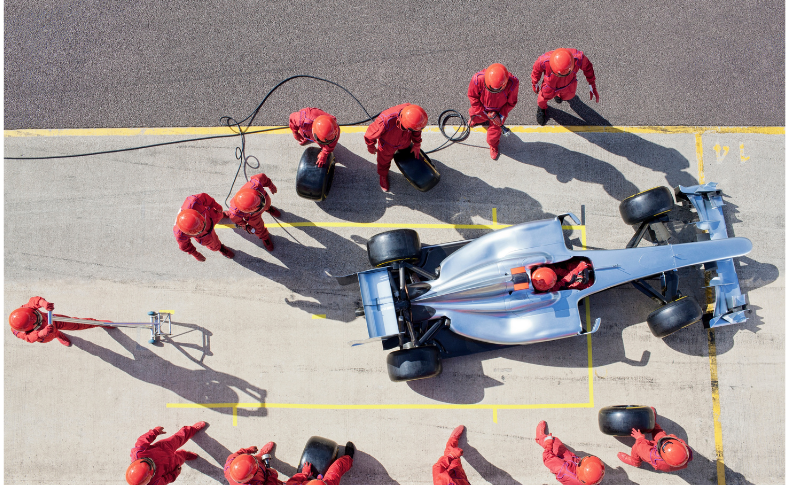When the world’s top athletes take the field, they don’t rely on luck. Behind every sprint, every leap, every decisive move lies years of training, careful preparation, and a commitment to standards that leave no room for mediocrity.
Yesterday, in a conversation with an IT Managed Service Provider, the parallels between world-class athletics and world-class business came into sharp focus. To perform at the highest level — whether on the track or in the boardroom — requires more than talent. It demands discipline, clarity, and a system that transforms good intentions into consistent action.
Training Like Athletes, Performing Like Professionals
Athletes don’t stumble into excellence. They follow rigorous routines: daily drills, clean nutrition, recovery strategies, and constant coaching. The same is true for organizations. The “moment of truth” isn’t a gold medal race; it’s the interaction at a customer touch point, when preparation is put to the test.
World-class teams don’t wing it. They rehearse, refine, and prepare so that when it counts, excellence feels effortless.
Defining Standards: What Does World Class Look Like?
The first step is self-awareness. What does “world class” mean to your team? To your brand? To your customers?
Frameworks exist — ISO standards, for example — but many dismiss them as bureaucratic relics. That perception is outdated. ISO doesn’t dictate a one-size-fits-all model; it provides a flexible structure. Instead of “Quality Management System,” call it [Your Company’s] Way. Branding the system in your own language helps embed it into culture.
Young employees, especially, may not know what “good” looks like. Leaders must show them. Excellence is not necessarily instinctual — it is taught, demonstrated, and reinforced.
Building Teams for Tomorrow
Excellence also demands clarity about roles and competencies. What skills are required today? What new skills will be needed as technology, products, and services evolve?
Artificial intelligence is already reshaping this conversation. AI will enhance many roles, amplifying human capability and freeing people from repetitive, low-value tasks. But it will also replace some positions entirely. In practice, people may find themselves doing less—yet expectations for their performance will rise.
That means the bar is higher than ever: to thrive, individuals must become exceptional, world class, in whatever they do. Competence will no longer be enough. Distinction will be the new baseline.
Annual assessments of roles and competencies create a roadmap for development. Sometimes this means training or hiring new talent. Other times, it means outsourcing — or automating with AI. And yes, it may mean benching players whose skill sets no longer align.
World-class teams are built on intentionality, not inertia.
Systems That Empower, Not Replace
Once standards are defined, they must be codified — policies, step-by-step processes, training guides, and reference materials. Far from stifling creativity, documentation empowers teams to perform at their best.
Way We Do, a process management platform, serves as the playbook. Employees can access guidance at any time, ensuring alignment and consistency. Crucially, documentation doesn’t replace critical thinking. It creates a foundation for alignment, enabling individuals to grow while contributing to the collective good.
Being world class means no passengers. Everyone is accountable. Everyone commits to the team.
The Human Side of Change
Becoming world class doesn’t happen overnight. It requires patience, leadership, and relentless communication. Change is often uncomfortable, but leaders must guide teams through it with clarity and compassion.
Here, Dr. John Kotter’s 8-Step Change Model provides a proven blueprint. Paired with platforms like Way We Do, abstract change management principles become actionable, trackable steps. Organizations can create urgency, build coalitions, communicate vision, and anchor new approaches directly into culture.
Change is no longer a buzzword; it becomes lived reality.
Anchoring Excellence in Culture
At its core, being world class isn’t about perfection — it’s about commitment. Commitment to principles, to each other, to the relentless pursuit of “better.”
Just as an athlete never stops training, organizations must continually refine their standards. Feedback loops, short-term wins, and visible progress are critical to sustaining momentum.
Excellence is not a project; it is a practice. It is the way we do things around here.





